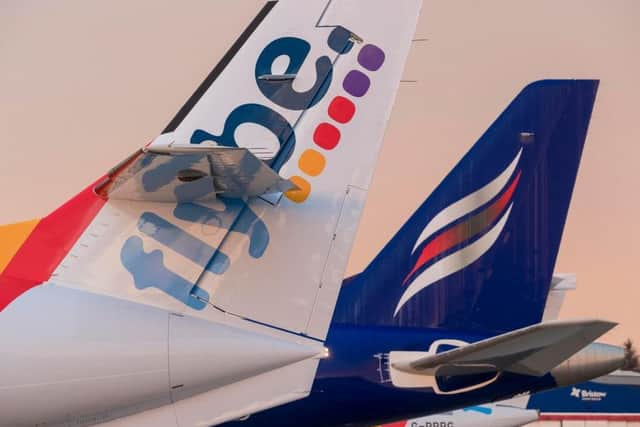Travelling toward a fast moving future


Intelligent Transport covers a broad spectrum, from 700mph hyper-loop pods travelling in a vacuum tube – which could potentially take you from Edinburgh to Cardiff via London in around 90 minutes – to self-driving lorries being tested on UK roads this year, to Bell Helicopter announcing they plan to test a network of flying cars by 2020.
This bold new world that awaits us will be accompanied by significant legal parameters. The increasing level of electronic passenger data being gathered by transport providers, for example, will come under greater legal scrutiny from 25 May when GDPR comes into effect. Cyber security failures will carry increasing risks and affect every organisation.
Advertisement
Hide AdAdvertisement
Hide AdThis comes as we’re seeing a growing trend in courts imposing major data violation penalties. Last year cruise industry operators Carnival, Norwegian and Royal Caribbean along with an associated marketing company were ordered to pay $12 million by a Chicago court for spamming people with pre-recorded telemarketing calls. FlyBe and Honda were also fined for sending ‘customer service’ emails without consent.


Transport and travel firms as well as other organisations must therefore review their contracts to ensure that the relevant data protection policies and structures are in place. They need to consider contract reviews to ensure their legal protections are in line with newly-evolving processes such as AI, but also cover the potential for human error which can impact how it is applied. BA’s recent £150 million system failure has been attributed to an IT contractor failing to follow proper procedure when they rebooted a crashed system too quickly. The error left 75,000 passengers stranded in different locations around the world. Strong contract terms are vital in obtaining reimbursement in such circumstances.
Whatever the contract terms in place, larger companies working with specialist sub-contractors and other smaller scale businesses need to be aware that these partners don’t often have the financial strength to pick up the cost when things go wrong. Enlisting guarantors, using security bonds and ensuring appropriate insurance is in place can offer some safeguard if the promised services or products do not materialise.
For public authorities the technological change we are seeing from the rise of Intelligent Transport makes planning and legislating a significant challenge. One example can be found in the predictions that the growing use of shared cars could result in just 10 per cent of current vehicles being on the road in future. In this scenario, governments would need to consider the best infrastructure projects to invest in and whether measures like road tax would need to be replaced by a levy on distance travelled. This could dampen enthusiasm to embark on future projects like the Queensferry Crossing and put more of an onus on investment in areas such new or improved cycle lanes in key cities. Intense public scrutiny, as seen in the ongoing Edinburgh Tram inquiry, may also affect future infrastructure decision making. Modern legislation is trying hard to reflect the technology revolution. The English 2017 Bus Services Act includes obligations on open data sharing and powers to make multi-operator/multi-modal ‘advanced ticketing schemes’, as well as powers to make regulations compelling the provision of accessible passenger information for disabled persons.
The Vehicle Technology and Aviation Bill was also debated in the House of Commons last year, with provision for the regulation of automated and electric cars, proposing that persons who suffer damage from an accident involving such a vehicle will have a direct claim against an insurer.


A futuristic world of new and innovative travel modes combined with the ever-increasing use of technology is fast becoming the norm as Intelligent Transport continues to develop. Legal issues are paramount within the transformational changes behind this phenomenon. Understanding the legislative and regulatory environment in which the transport industry operates is vital for all organisations and will help ensure they are better placed to keep the full protection of the law.
Gemma Lampert is a Partner at CMS